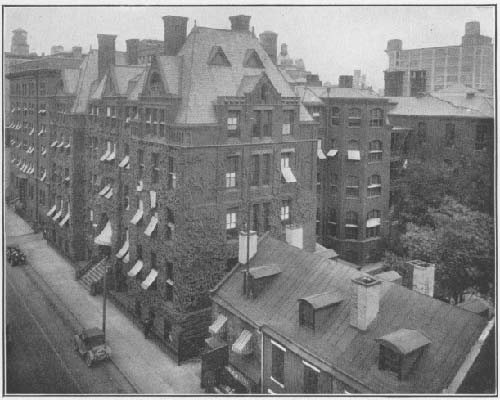The Ward Surname and Homeopathy
June 28, 2008
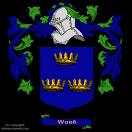 **The Ward surname **contributed five
jobbing homeopaths; one eclectic physician; one Consulting Physician at
the Binghamton City
Hospital; a social
reformer and activist; the first woman ever elected to
membership
of the American College of Surgeons, Vice President of the
American Institute of
Homeopathy, and Professor of Obstetrics
at Hahnemann Medical
College in San
Francisco; an orthodox doctor who converted to homeopathy to become
Chair of Obstetrics and Diseases of Women and of Medical Jurisprudence
in the Homeopathic Medical College of
Philadelphia,
one of the founders of the New York Homeopathic
College, a
second Chair of Obstetrics and Diseases of Women and of Medical
Jurisprudence in the Homeopathic Medical College of
Philadelphia; a
Professor of Theory and Practice in the New York Homeopathic Medical
College; a
Dean and Professor of
Abdominal and Pelvic Surgery at the Hahnemann Medical College of the
Pacific
and Resident Physician to Ward’s Island Homeopathic
Hospital; and
another orthodox doctor who converted to homeopathy to become Professor
of Physiology in the Homeopathic College of
Pennsylvania.
**The Ward surname **contributed five
jobbing homeopaths; one eclectic physician; one Consulting Physician at
the Binghamton City
Hospital; a social
reformer and activist; the first woman ever elected to
membership
of the American College of Surgeons, Vice President of the
American Institute of
Homeopathy, and Professor of Obstetrics
at Hahnemann Medical
College in San
Francisco; an orthodox doctor who converted to homeopathy to become
Chair of Obstetrics and Diseases of Women and of Medical Jurisprudence
in the Homeopathic Medical College of
Philadelphia,
one of the founders of the New York Homeopathic
College, a
second Chair of Obstetrics and Diseases of Women and of Medical
Jurisprudence in the Homeopathic Medical College of
Philadelphia; a
Professor of Theory and Practice in the New York Homeopathic Medical
College; a
Dean and Professor of
Abdominal and Pelvic Surgery at the Hahnemann Medical College of the
Pacific
and Resident Physician to Ward’s Island Homeopathic
Hospital; and
another orthodox doctor who converted to homeopathy to become Professor
of Physiology in the Homeopathic College of
Pennsylvania.
 Aloa Francis
Ward** **1834
-** **
Aloa Francis
Ward** **1834
-** **
of Jamestown, N. Y., was born in Amboy, Oswego county, N. Y., on June 30th, 1834. His father, Aloa Ward, was a laboring man ; his grandfather, it is supposed, enlisted in the army, as he left home during the war of 1812, and was never afterward heard from. He is of English and Scotch descent. His mother died when he was about fourteen, and shortly afterward he went to live with an uncle in Portland, Chatauqua county, N. Y., where he remained until he reached his majority.
His education was principally obtained at a common school, though he attended two or three terms at a select school in Portland, and also two half terms at Fredonia Academy. He began to study medicine about January 1st, 1856, with Dr. L. M. Henyon, of Westfield, who removed to Buffalo the following June ; then he continued his studies with Dr. George A. Hall, of Westfield. In August of that year he went, in company with Dr. A. E. Keyes, to Pittsfield, Mass., and attended his first course of lectures at the Berkshire Medical College.
From that time until the winter of 1859-60 he pursued his studies as best he could, teaching school a part of the time, and occasionally working by the day or month to obtain means to pay his expenses. He attended his second course of lectures at the Cleveland Homeopathic College in the winter of 1859-‘60, and graduated at the close of the term.
He commenced to practice at Girard, Erie county, Pa., about the middle of May, 1860, but not meeting with a remunerative business, he removed to Jamestown, N. Y., on April 1st, 1861, where he still resides, and where he has worked himself into a successful practice.
He has been a Republican ever since the formation of that party, but takes no active part in politics.
He has been married twice : first to Helen M. Farnham, on January 26th, 1863 ; she died on January 16th, 1869 ; and on February 1st, 1870, he was united to Jane S. Hastings.
Dr. Ward is almost entirely a self-made man. He is a thoroughly informed physician, very enthusiastic in his profession, and devoted to the principles of homœopathy. In the sick-room his gentle and sympathetic manners made him a universal favorite, while his social qualities have won him numerous friends in every community where he has dwelt.
 **Caleb D Ward a member of the **Kansas
Eclectic Medical
Association
**Caleb D Ward a member of the **Kansas
Eclectic Medical
Association
An Eclectic Medical Association was organized on June 1, 1869, at Lawrence, with Samuel E. Martin, of Topeka, president; N. Simmons, of Lawrence, recording secretary; M. Summerfield, of Lawrence, corresponding secretary; David Surber, of Perry, treasurer.
This association later developed into a state organization, which was incorporated by the act of March 27, 1871, as the Kansas Eclectic Medical Association, Daniel B. Crouse, Ansel M. Eidson, George H. Field, Samuel E. Martin, David Surber and Caleb D. Ward as incorporators.
 Charles Austin
Ward1862 -**
**
Charles Austin
Ward1862 -**
**
Binghamton, New York, born Holland Patent, N. Y., September 8, 1862 ; graduated M. D., New York Homeopathic Medical College, 1887 ; Consulting Physician, Binghamton City Hospital ; member of the American Institute of Homeopathy.
of Baltimore, Md., was born in Georgetown, D. C., March 31st, 1825, His father, George W. Ward, was a farmer in Montgomery county, Md., and served in the war of 1812, and his grandfather, John Ward, in that of 1776.
He was educated at McCloud’s Academy, Washington, D. C., under a strict preceptor. Being thrown on his own resources, he entered mercantile life at an early age. Having fortunately succeeded in acquiring a competency, his attention was directed towards medicine, and he studied homœopathy under Dr. Henry Newell Guernsey, of Philadelphia, afterwards entering the Homeopathic Medical College, of that city, where he graduated, and is now reaping the reward of his industry and perseverance in an extensive and lucrative practice.
 Elizabeth
Stuart Phelps
Ward
1844 - 1911 was an American author and social reform activist. Elizabeth
was an advocate of homeopathy and she once characterised her principle
causes as ‘Heaven, Homeopathy and women’s
rights‘
continue
reading:
Elizabeth
Stuart Phelps
Ward
1844 - 1911 was an American author and social reform activist. Elizabeth
was an advocate of homeopathy and she once characterised her principle
causes as ‘Heaven, Homeopathy and women’s
rights‘
continue
reading:
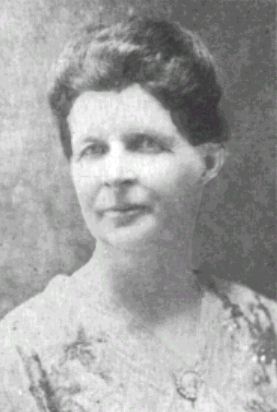 Florence Nightingale
Ferguson Saltonstall
Ward 1860 - 1919 was
married
to James William Ward.
She was a proponent of twilight
sleep.
Florence Nightingale
Ferguson Saltonstall
Ward 1860 - 1919 was
married
to James William Ward.
She was a proponent of twilight
sleep.
Florence Nightingale Ward was a colleague of Ethelbert Petrie Hoyle.
Edi Pfeiffer writes: ’… I’m currently working on the biography of Dr. Florence Nightingale Ward, a surgeon and homeopath from the turn of the past century. When I was completing my B.A. degree at Mills College a few years ago, I wrote my senior thesis on Florence. A slightly edited version of this paper was published in 2005 in Volume 11 of The American Homeopath…’ see her article at http://www.berkeleyhomeopathy.com/articles-and-research/
Florence Nightingale Ward, one of the nation’s foremost women surgeons, died last night at her home, 2700 Broadway, after having practiced in this city since 1888.
As a war worker, Dr. Ward gave much of her time in the last two years to the Medical Board of the National Defense, being a member of both bodies. She was also head of the base hospital unit of the women physicians. She was also head of the base hospital unit of the women physicians.
Dr. Ward was the first woman ever elected to membership of the American College of Surgeons. She had enjoyed high honors in her profession, including two terms as Vice President of the American Institute of Homeopathy, and the Presidency of the Obstetric Society of the American Institute of Homeopathy.
Born in San Francisco in 1860, Dr. Ward was educated in this city and New York, and made four trips to Europe to study. For many years she was Professor of Obstetrics at Hahnemann Medical College. In 1907 she established a private sanitarium at 1195 Bush street.
Dr. Ward is survived by two sisters, Miss Irene Ferguson and Mrs. Harry Burieson, and three daughters, Mrs. Morse Erskine and Mrs. George Wolff, of this city, and Mrs. Mattison MD of Montclair, NJ
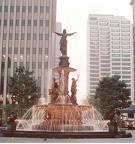 Henry Alston
Ward 1853 -**
**
Henry Alston
Ward 1853 -**
**
Richfield Springs, New York, born Hartland, Niagara county, N. Y., December 1, 1853 ; literary education, Syracuse High School ; graduated M. D., Pulte Medical College, Cincinnati, 1887 ; coroner of Otsego county, 1897-1906 ; member of the American Institute of Homeopathy.
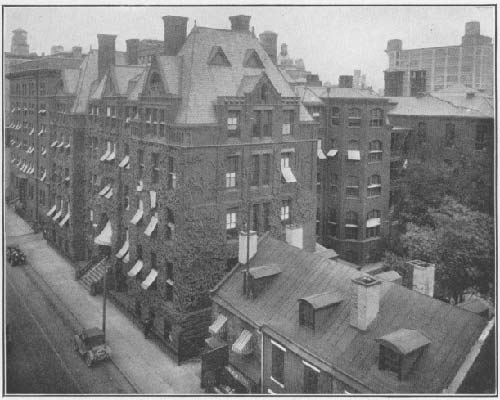 Isaac
Moreau Ward 1806
-?1876** **
Isaac
Moreau Ward 1806
-?1876** **
of Newark, N. J., was born in the village of Bloomfield, a few miles north of Newark, in 1806. After receiving a primary education, he became a student in Yale College (graduating from Rutgers Medical College), from which he graduated in 1825.
Choosing medicine as his life-work, he at once commenced its study under Dr. David Hossack, and graduated from Rutgers Medical College, New York, in 1829.
He settled down to practice in Newark, and early secured a large share of the confidence of the community and his compeers, being chosen to high positions in the County and State Medical Societies, and to fill important public trusts.
One of these was to study and report upon the Asiatic cholera, when first it appeared in New York city, in 1832, its character, and the comparative effects of remedial agents. He saw homeopathy and allopathy tried side by side in the Park Hospital, and the superior advantages of the former demonstrated beyond all question.
Being the first homeopathic practitioner in the State, he gained while quite young a large measure of notoriety, and his talents becoming known, good prospects opened before him at home. He was, however, induced by Drs. John Franklin Gray and A. Girard Hale, to whom he felt greatly indebted for his knowledge of homeopathy, to remove to Albany, N. Y., in 1841.
Homeopathy having been introduced there by two German physicians, Drs. Augustus P Biegler and Charles F Hoffendahl, the way to a successful career was opened before him.
While residing here he assisted in the organization, in 1844, of the American Institute of Homeopathy. On the formation of the New York State Homeopathic Medical Society, in 1849, he was elected its first President.
In the following year, his constitution showing signs of giving way, he retired to a home in the suburbs of Newark, leaving his practice to Dr. Henry D. Paine, who had been associated with him for four or five years. During this retirement he devoted much attention to the subject of horticulture, and especially to the cultivation of the pear, upon which he published a series of valuable papers.
In the year 1853, he was called to fill the Chair of Obstetrics and Diseases of Women, and of Medical Jurisprudence, in the Homeopathic Medical College of Philadelphia, rendered vacant by the death of Dr. Joseph G Loomis.
He retired in 1857, but was recalled to the same position in 1859. He permanently resigned in 1861 to aid in the organization of the New York Homeopathic College (with Clemence Lozier), in which he accepted the same professorship.
While filling this Chair he became interested in the effort to afford women an opportunity of acquiring a thorough medical education, out of which arose a medical college for women. He himself drew up the charter, acted as its Dean, for two years occupied the same chair as in other colleges, and during one winter added a course of lectures on the practice of medicine. This action giving offence to some of his colleagues in the New York Homeopathic College, he resigned his professorship there, and shortly afterward retired altogether from professional teaching.
The patients presented for clinical instruction during these years of service to the profession -which was in the main without compensation- ave him an acquaintance with the condition of the poor and outcast ones, that moved his sympathies to devote his energies for their amelioration, and led him into connection with many philanthropic associations.
At one time he was President of the Howard Mission, one of the Five Points charities, and he took a prominent part in the organization of religious meetings and in the establishment of homes for the fallen and outcast.
Dr. Ward married the eldest daughter of William Rankin, of Newark, by whom he has had six children. Joseph, the eldest of his two sons, graduated in the Philadelphia Homeopathic College in 1858, and now occupies, in the Homeopathic College, St. Louis, the same chair his father filled in other institutions for fifteen years.
The crowning, if not the closing work of his life, he claims to be that of seeking, in association with others from all the different denominations of Christians, a unity of effort to promote a higher standard of Christian living among the Lord’s people, by an entire consecration to His service, and a full trust in our Saviour Jesus Christ.
 **James A
Ward
**of New York, a high dilutionist…
**James A
Ward
**of New York, a high dilutionist…
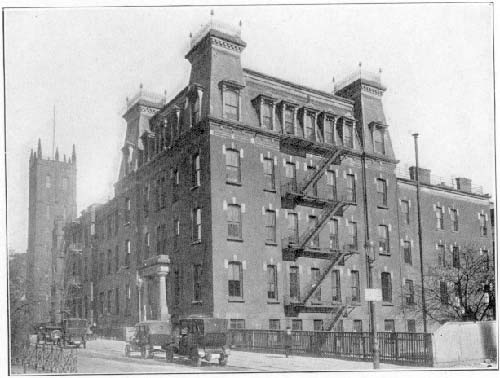 James H
Ward 1824 -**
**
James H
Ward 1824 -**
**
of Brooklyn, New York, was born on the 28th day of December, 1824, in Hanover, Morris county, New Jersey. He is descended from old Puritan stock, his ancestors having landed at Salem, Mass., in 1657. After leaving the ordinary village schools, he went to the city of New York and studied Latin and Greek with Professor J. I. Owen, formerly of the New York College.
Having completed this course, he entered the class of Dr. P. A. Aylette, and graduated from the medical department of the New York Homeopathic Medical College in the class of 1849-‘50. Being then anxious to give a thorough finish to his medical education, and of obtaining a more thorough scientific knowledge of some specialties than could be afforded him in New York, he went to Berlin, and placed himself under the direction of Rudolf Ludwig Karl Virchow, and became a proficient in the use of the microscope and in the study of the finer tissues of the human body.
Returning home, he put his knowledge into practice, and for twenty years of residence in Brooklyn, he has sustained a high position, enjoying an extensive and lucrative practice, and regarded as one of the best diagnosticians in the new school.
In 1869, he was appointed Professor of Theory and Practice in the New York Homeopathic Medical College, where he well sustained his reputation for learning. He is a gentleman of fine culture, great scientific attainments, and large practical acquirements of knowledge of his profession.
 **James William
Ward **1861 - 1939 was
married
to Florence Nightingale Ferguson Saltonstall
Ward.
**James William
Ward **1861 - 1939 was
married
to Florence Nightingale Ferguson Saltonstall
Ward.
James William Ward was a colleague of Richard Haehl.
James William Ward of San Francisco, California, Dean of the Hahnemann Medical College of the Pacific and for twenty years its Professor of Abdominal and Pelvic Surgery, is a native of Minneapolis, Minnesota, born March 19, 1862, son of William Emerson Ward and Elvira Jane Canney, his wife, and a descendant of Phineas Ward, a revolutionary soldier and patriot.
Dr. Ward acquired his elementary education in the common and public schools and graduated at the San Jose High School in 1878. He studied the classics under a private tutor. The foundation of his medical education was laid in a three year’s preparatory course with a medical preceptor, after which he entered as a student the New York Homeopathic Medical College and Hospital, and completed the usual three years’ course in two years, coming to his degree March 15, 1883, winner of the coveted faculty prize the appointment as Resident Surgeon to Hahnemann Hospital, New York city ; and he also was the winner of the faculty prize for the highest grade of scholarship, and thereby became possessor of a complete office case of medicines -five hundred remedies of various potencies.
In 1883 Dr. Ward was Resident Physician to Ward’s Island Homeopathic Hospital, and in 1895 he spent six months in Europe perfecting his professional education ; and again in 1901 he went abroad for further study in Vienna, Berlin and Berne.
The scene of his professional life has been laid chiefly in Sam Francisco, although his name and reputation are mot unknown : in other Pacific slope cities. (James William Ward was health commissioner and President of San Francisco in 1901). He has served as Surgeon to the City, and County Hospital of San Francisco, the Fabiola Hospital of Oakland, and the Hahnemann Hospital of San Francisco.
Dr. Ward is a member and now President of the health commission of the city and county of Sam Francisco ; a member of the American Institute of Homeopathy, member and ex-President of the California State Homeopathic Medical Society, member of the Southern California Homeopathic Medical-Society, the Surgical and Gynecological Society of the American Institute of Homeopathy, the Sons of the American Revolution, the Bohemian Club, the Union League Club, and of the Unitarian Club.
By his first marriage Dr. Ward has two daughters, Ruth and Aila Ward ; by his second wife (Florence Nightingale Fergerson) his children are Dorothy, Jean and James W. Ward, Jr.
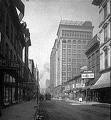 Joseph Ward the eldest of Isaac Moreau
Ward’s two sons, graduated at the Philadelphia Homeopathic
College in 1858,
and now occupies, in the Homeopathic College, St.
Louis, the same Chair
his father filled in other institutions for fifteen years.
Joseph Ward the eldest of Isaac Moreau
Ward’s two sons, graduated at the Philadelphia Homeopathic
College in 1858,
and now occupies, in the Homeopathic College, St.
Louis, the same Chair
his father filled in other institutions for fifteen years.
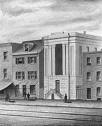 Walter
Ward 1816 - **
**
Walter
Ward 1816 - **
**
of Mount Holly, N. J., was born at Keene, the county seat of Cheshire county, N. H., January 9th, 1816. His father was an agriculturist. His grandsires fought in the American Revolutionary War, and held responsible positions in the Battle of Bunker Hill.
His preparatory studies were pursued at the venerable and celebrated academy at Ipswich, N. H., and on their completion, he began the study of medicine with Dr. William Gallup, a distinguished physician and surgeon of that place. He next spent a year in the office of Drs. Smith and Batcheller, men of note in the profession in Massachusetts ; and attended his first course of medical lectures at Woodstock, Vt.
The next year, he sought in the schools of Philadelphia the superior facilities offered there to the students of medical science, for a thorough education. He selected Jefferson Medical College, and, entering the class of 1839-‘40, graduated at the close of the session.
Having heard much of the new and strange system called Homœopathia, and, having witnessed some most remarkable cures, he resolved to investigate the system for himself, and if the results proved satisfactory, he would promptly adopt it as his future system of practice ; or if unsatisfactory would reject it, and adhere to the allopathic system.
To secure the best and most favorable examination, he placed himself under the guidance of Dr. Jacob Jeanes, one of the first in Philadelphia to acknowledge and adopt the new system, a man whom Dr. Ward pronounced “of strong mind, great moral courage, a ripe scholar, and a most judicious and skilful physician ; a character which he has most ably sustained over half a century.”
Under his tuition, he was led to embrace homeopathy as his future system of practice, and his confidence in it has strengthened year after year to the present time. He joined the American Institute of Homeopathy at its first session in Philadelphia, then the youngest member of that body ; filled several offices in the County Medical Society from time to time ; was chosen Professor of Physiology in the Homeopathic College of Pennsylvania, and had the honor, with others, of signing the first diplomas granted by that body.
He removed, in 1849, to Mount Holly, the county seat of Burlington county, N. J. In 1855, he received the honorary degree from the Homeopathic College of Pennsylvania. Here he has labored faithfully and energetically for twenty-two years.
He came to Mount Holly as one of the pioneers of homeopathy, at a time when a fine of fifty dollars was imposed upon any one who practiced medicine without a license from the Old School Society. By his influence in well-timed efforts, he has been largely instrumental in securing from the legislature an independent charter for the practice of homeopathy throughout the State -a charter placed upon the broadest foundations.
By patience and persistence he has secured the confidence and esteem of the most wealthy and influential portion of the community in which he resides, and enjoys the well-earned reputation of being an upright, energetic, and skilful physician.
But little past middle life, he is now in the full tide of practice ; and being of strictly temperate habits, he has not lost more than two weeks by sickness in the last twenty years. He has served as President of the West Jersey Medical Society, and at the last annual meeting of the State Homeopathic Medical Society, he was unanimously elected its President, which office he at present fills.
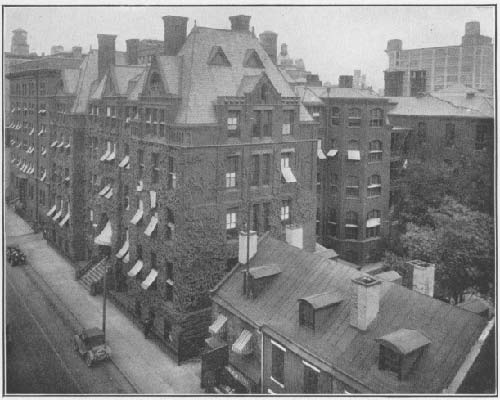 William
Ford Ward 1873 -**
**
William
Ford Ward 1873 -**
**
Binghamton, New York, born Holland Patent, N. Y., January 20, 1873 ; graduated, Binghamton High School, 1892 ; graduated, Hahnemann Medical College and Hospital of Philadelphia, 1897 ; interne Brooklyn Homeopathic Hospital, 1897-1898.
